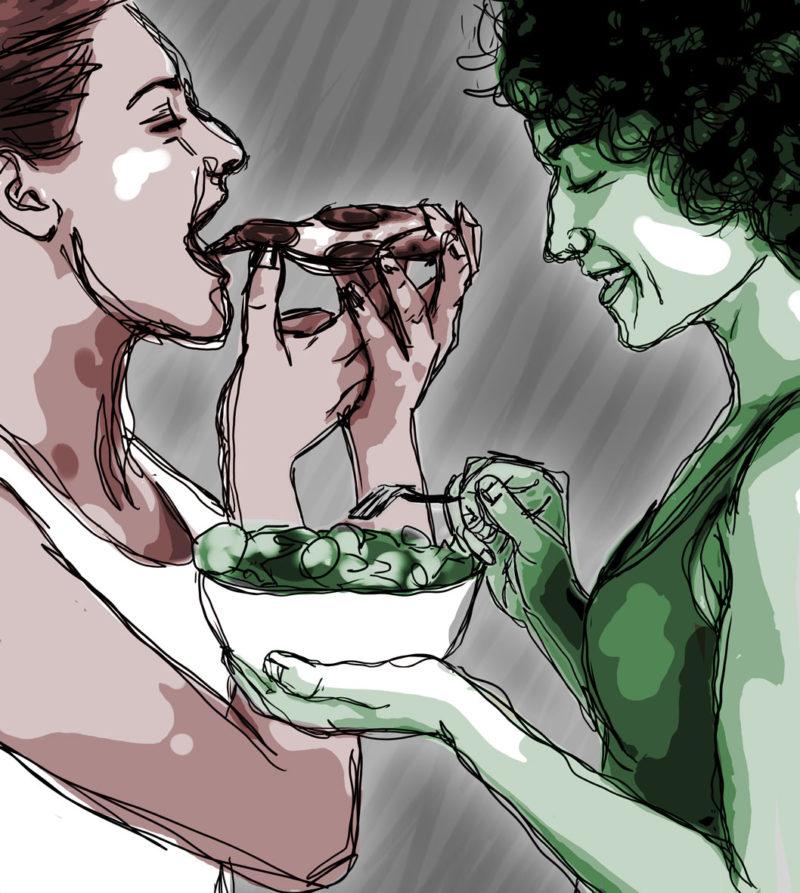Nowadays, terms such as “˜vegan’ and “˜vegetarian’ carry loads of connotations along with them. It’s become a common joke, but the stereotype of the “˜preachy vegan’ often pops up in popular culture. While I find these jokes pretty entertaining, even as a vegetarian myself, I can’t help but wonder why we often pit meat eaters and non-meat eaters against each other.
Part of this characterization of non-meat eaters is due to methodology of the People for the Ethical Treatment of Animals (PETA). The organization is often portrayed as the epitome of the fanatic animal rights activist stereotype “” their advertisements are often aggressive and provocative, comparing anyone who eats meat or supports the meat industry to murderers.
While I’m sure not every member of PETA has an actual hatred for those who consume animals, the messaging they use paints a clear message: Meat eaters beware, we’re coming for your lifestyle.
The problem with this approach to the argument is that it often fails to educate those who are not vegans or vegetarians about the practical and moral reasoning behind our decision not to consume animals. Sure, if someone were to look through the PETA website, they would find plenty of constructive information on why a life without meat consumption is a good decision, but it’s pretty unlikely that their website will be visited by people who feel they are being personally attacked by the organization.
The second main factor that turns a lot of people from the idea of vegetarianism and veganism is the idea that non-meat eaters are prioritizing other species before their own. An example of this is when people say, “It’s only natural that we eat meat because of the food chain.” The idea that non-meat eaters are doing something unnatural, or that they are somehow betraying the human race by focusing so much on the well-being of other species, furthers the perception of an “˜us-versus-them’ mentality, in which meat eaters feel the need to defend their way of life from vegans and vegetarians.
While I cannot rightfully speak for all vegetarians “” and certainly not all vegans “” I can pretty confidently reassure my meat-eating friends that we’re not all constantly trying to get you to change your diet. While we would love to see a world free of animal consumption, we recognize that switching to a plant-based protein diet is not the most appealing idea to those who’ve grown up eating meat.
We know this because many of us have been meat eaters ourselves at some point in our lives. I only stopped eating meat towards the end of high school, and I still find myself craving a burger every once in awhile.
Secondly, most of us don’t see our diet as putting other species before our own. In fact, not eating meat can have some significant benefits for us humans: the agriculture industry makes up a major part of greenhouse gas production, and a meat-free diet helps cut down on those methane emissions produced by cows and other animals. We see our vegetarianism and veganism as a way for us to live healthier lives on a healthier planet.
So the next time you see that preachy vegan or vegetarian commenting about animal consumption, hear them out. I promise we’re usually rational people trying to make a difference, and if our activism comes off as aggressive, it could be largely out of frustration from not being taken seriously. Then feel free to tell us your concerns or counterarguments, and we’ll all walk away a little more informed.







